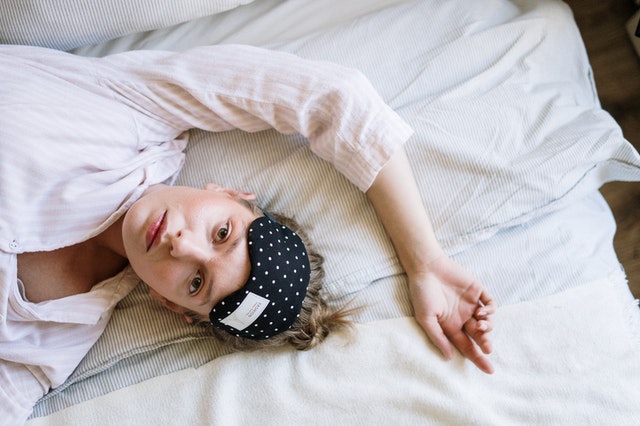After a night of little or no sleep, you might feel drowsy and lethargic and have a hard time getting up. You feel tired and sleepy during the day, and with lower energy levels, it is difficult to pay attention to your work or chores. Or you need to nap a few times, sleep longer, and fall asleep 5 minutes after laying in bed. When this becomes a chronic condition, you can also experience mood changes, stress, paranoia, and anxiety. Sleep deprivation is a real problem that makes it challenging to function normally and harms both your work and social life. But before discussing the relationship between sleep deprivation and mental health, let’s look at the basic question.
Why Do You Need To Sleep?
Sleep allows your body and mind to relax after constantly functioning throughout the day. We clearly require sleep and feel better after a quality power nap. However, the exact reason is yet to be discovered by scientists.
Many theories have been developed through the observation of sleeping humans and animals. These include the inactivity, energy conservation, restorative, and brain plasticity theories. While said theories do not entirely explain the need for sleep, they all prove its necessity.
The inactivity theory discusses sleep as a means for wild animals to survive in a dangerous environment(in the dark). By staying still, an animal can avoid a predator’s detection and survive, leading to sleep becoming an evolutionary trait. However, arguments can be made that staying conscious in the present moment and inactive rather than sleeping would be the safer option.
Food sources can be challenging to obtain for many animals. Sleep can be a source of energy conservation. Research shows that the body consumes as much as 10% less power while in a state of rest.
Some vital functions, such as muscle growth, tissue repair, and the release of growth hormones, are performed by the body only during sleep. Hence, rest also has a vital function.
Finally, new research has found that change in the structure and organization of your brain is related to sleep. For instance, infants spend 13 to 14 hours of a day asleep, half of which consists of Rapid Eye Movement(REM) sleep.
Before discussing the psychological effects of sleep deprivation, let us take a look at the causes of mental health sleep deprivation.

Causes Of Sleep Deprivation And Mental Health Effects
1. Work, School, or Life Requirements
When social demands in the form of work, school, or other engagements require time, individuals may decide to forgo sleep. For instance, lack of sleep is the norm in professions such as healthcare, transportation, the army, etc. Trends such as longer working hours, working from home, shift work, burnout, and irregular sleep schedules are also responsible for the same.
2. Medical Conditions
Sleep deprivation and mental health are intimately connected. Disorders such as apnea, insomnia, restless leg syndrome, and severe medical conditions can also lead to a lack of sleep. Excessive stress or anxiety about sleeping might also make the process challenging.
3. Poor Environmental Conditions
Poor environmental conditions often cause the mental effects of sleep deprivation. For instance, temperature(too hot or cold), light(too much light), and noise make sleeping difficult. Exposure to artificial light via smartphones, bulbs, etc., throughout the day can also affect sleep adversely.
The Relation Between Sleep Deprivation And Mental Health

1. Cognitive Ability
A study by William D.S.K summarizes the mental effects of sleep deprivation. It is well known that lack of sleep and mental health affect reaction time, alertness, and attention. In a well-rested, healthy person, attention and vigilance levels remain consistent throughout the day. However, these properties can fluctuate in a sleep-deprived person. Sleep loss does not affect rule-based reasoning, planning tasks, and decision-making. However, creativity and higher-level functions, especially innovative ones, are affected.
2. Negative Mood
The Book “Sleep Disorders and Sleep Deprivation: An Unmet Public Health Problem” extensively covers the effects of sleep deprivation, the need for sleeping correctly, and the reasons for a sleepless society.
As anyone who’s gone without sleep for a day or two can tell, sleep deprivation and mental health affect mood negatively. As mentioned above, sleeplessness is a common symptom of mood disorders like anxiety and depression. Anger, frustration, irritability, emotional exhaustion, and sadness are common among those who lack sleep.
Studies have shown that mental distress, alcohol use, depressive symptoms, anxiety, and lower self-confidence are correlated with sleep across different age groups. These emotions may or may not lead to harmful behavior, but they are certainly a source of discomfort for the sleep-deprived person. Coping strategies can help you deal with these symptoms for a while, but it is best to tackle the issue by restoring your sleep cycle.
3. Learning And Memory Formation
Research suggests that sleep is vital to memory and learning, and a lack of sleep may hinder the process of memory formation. Being sleep deprived can also make it difficult for you to focus or practice concentration. Sleep helps you process more information after waking up and aids a process known as memory consolidation. It involves transforming newly learned experiences into a part of your long-term memory.
4. Physical Ailments
The effects on physical fitness cannot be ignored when discussing the relationship between sleep deprivation and mental health. For instance, sleep loss is linked with heart problems such as heart attacks, hypertension, increased blood pressure, and stroke.
An impaired glucose tolerance can also cause a greater risk of diabetes and obesity. These bodily conditions can further affect sleep schedules and quality, leading to a cyclical health decline in patients. You can prevent such issues by taking steps to keep your immune system healthy.
Insomnia: The Most Common Sleep-Related Issue
While lack of sleep is related to various disorders, insomnia is the most commonly reported condition. After discovering the link between sleep deprivation and mental health, knowing how to sleep better is necessary. But before doing that, let us examine the most common sleep-related issue.
Insomnia refers to the inability to sleep despite having the ideal conditions for doing so. It is not clear precisely what leads to this condition, but it is related to stress and anxiety. It can disrupt social or work schedules, reduce the quality of life, and lead to mental distress. Other causes you may lack sleep include:
-noisy or bright places(poor environmental settings)
-effects of the medication
-symptoms of other disorders(including sleep, mood disorders, etc.)
Mental Health And Sleep Deprivation: How To Sleep Better?

Quality sleep can improve your quality of life, leading to a healthier body and mind. You can follow the steps to sleep better and enjoy a good night’s rest.
1. Set up a sleep schedule.
Sleeping and waking up at fixed times can help you get habituated to the same. By doing so, the process of sleeping, waking up, and planning your day will become much more manageable. You can also start habit stacking around your sleep cycle to have a more organized lifestyle overall.
2. Reduce the lighting in your surroundings during the evening and night.
Exposure to artificial light throughout the day and bright lights can make it difficult to sleep. You can reduce the effects by using a blue light filter application on your smart devices when scrolling through social media or using different applications and reducing the amount of light you are exposed to the later it gets.
3. Exercise at regular intervals.
According to a study by C.E. Kline, regular exercise reduces insomnia and other sleep-related conditions. Physical inactivity is a common issue affecting many in today’s culture, and regular exercise can help you overcome this health issue along with an irregular sleep cycle.
4. Avoid meals, caffeine, and alcohol before sleep.
Meals, caffeine, and alcohol before bed can hinder sleep or reduce the quality of the same. According to a study by Christopher Drake and others, sleep hygiene can be greatly reduced if caffeine is taken close to when you are about to sleep. Avoiding your coffee cup for at least 6 hours before going to sleep is recommended.
5. Set up the right environmental conditions.
You can turn off the lights, adjust the room temperature, and use noise-canceling headphones to create the right conditions for sleeping. According to sleepfoundation.org, a sleep environment is vital to your sleep hours and the times you are awake. By optimizing your bedroom for a feeling of comfort and safety, you can greatly increase your quality of life. Conversely, not having enough comfort in your daily life might be a source of sleep deprivation. If work consumes most of your time, it is a sign that you should take a mental health day off, for instance.
Conclusion
Sleep deprivation and mental health are highly correlated. A lack of sleep can reduce attention and vigilance, cause low mood, decrease learning ability, increase the risk of heart disease, etc. Professional and social demands, irregular schedules, and medical conditions are among the primary causes of reduced sleep. You can make up a sleep schedule, exercise, avoid food before bed, and set the right conditions for quality sleep. If you still have trouble sleeping, refer to this guided sleep meditation to help you rest.
For more information on sleep deprivation effects on mental health, mental wellness, and premium products catered to your needs, subscribe to Your Mental Health Pal.

